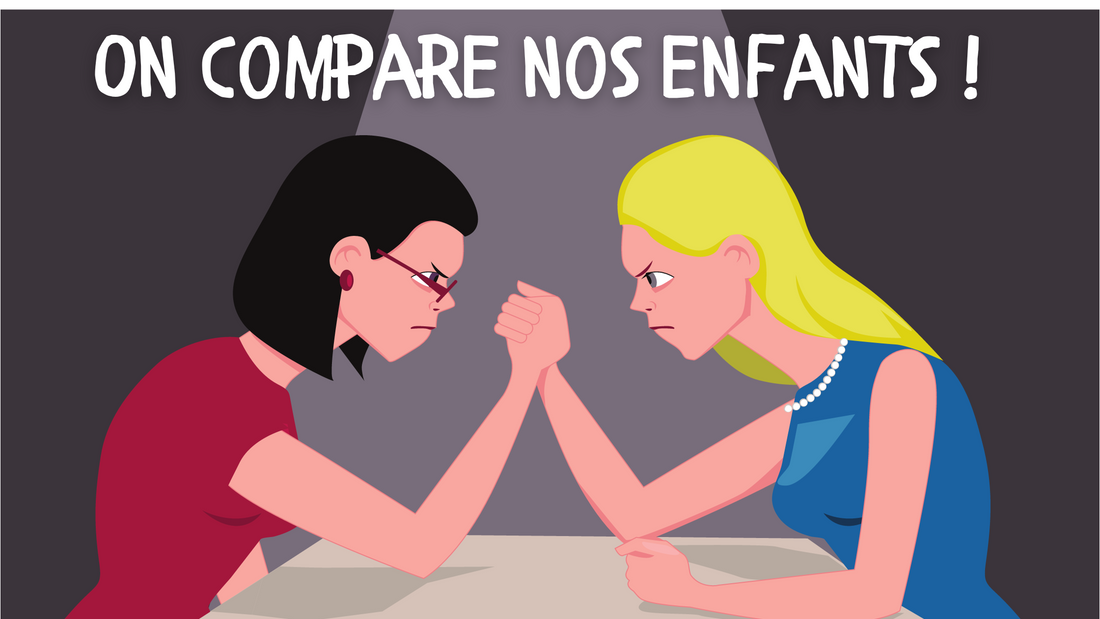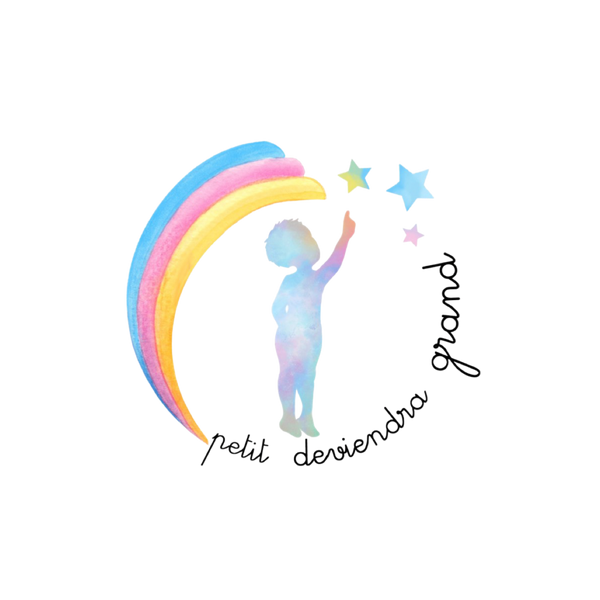
I COMPARE MY CHILDREN TO THOSE OF OTHERS!
Laurie GozlanShare
We live in community, we need each other to evolve, to survive. We have friends, an entourage, and our children too... And inevitably, at some point, we all come into comparison. Let anyone who can say that he has never, even for a micro second, compared himself to another, raise his hand. This tendency to compare, which may seem unhealthy, is in reality a drift of our ego.
This comparison mechanism is natural, instinctive, but it is also useful to know that it is neither more nor less a manifestation of our ego. By listening to the podcast “Joy Spirit” produced by Joy Solal, which I highly recommend if you are looking to develop your self-knowledge in a gentle and intelligent way, I finally understood where this tendency towards comparison that I felt was unhealthy came from. and kept trying to push back, but who seemed to want to force a way through all the same.
Comparison in Parenting
Parenthood is a place where our ego is particularly developed, because consciously or not, we see our child as an extension of ourselves, and sometimes even as an opportunity to “fix” ourselves. We feel, and society confirms this to us, that what our child is and does says a lot about us, as a parent, as a citizen, as a human... Enough to put a lot of pressure on our ego and encourage comparison right?
Joy Solal illustrates the idea with a banal scene from everyday life: We are on vacation with friends whose children are more or less the same age as ours. These are the ideal conditions to trigger the titillated ego-comparison cocktail. Naturally, and quickly, children will start comparing their talents: Who dances better? Who runs the fastest? Who is the most sporty? The most creative? And we parents do exactly the same: Is my child as good as the others? Does he have more or fewer seizures than them? Is he also gifted, charismatic, evolved?…
The Comparison and its Impact
If we think that we are well positioned in the scale of comparison, then we relax, until the next opportunity. But if we feel that our child is “less well”, “behind”, “more in difficulty”, then our egos and worries catch fire!
Joy Solal suggests putting a more objective lens on this comparison: It is entirely relative and therefore means nothing. If my daughter sometimes has difficulty eating, and the child I compare her with never does, I will question my educational method. But if the child I'm comparing her to throws a tantrum at every meal, suddenly my daughter's situation will seem much better. We notice that my daughter's situation is the same in both cases! This behavior that was not problematic for me becomes problematic.
It also highlights problems that were not there until now. It may be that the fact that my daughter doesn't have a great appetite has never worried me more than that, her weight and growth curve being correct. It may also be that food has never been a topic for me, so naturally I don't make it a topic for my child. And yet, suddenly, just through comparison, glances, criticism, or even kind advice from other parents, this behavior which was not problematic for me becomes so.
How to Manage Comparison?
Should we then NEVER compare ourselves again? Even if we wanted to, it would be impossible, and it is not recommended. As with anything, excess is harmful. Comparison can sometimes be very useful, even save lives (when we think, for example, that abusive behavior is normal, and when we realize by comparison that it is unacceptable). There is also no question of no longer listening attentively to the advice of those around us, which can often prove to be fair and helpful.
Education takes into account 2 variables: the uniqueness of the child and the uniqueness of the parent. The “Joy Spirit” podcast poses an essential reminder: The idea is to “be enlightened by the lights of others as long as it does not stifle our own flame”, as Joy puts it so beautifully. If we are able to become aware of our values, our vision, our uniqueness and that of our children, then we will be able to make decisions that take into account all these parameters, which are ours, and ours alone.
If you want to “put as much of who you are as possible into what you do, and this in each area of your life”, I invite you to join the Joy Spirit podcast, available only on private watsap group.
Ask to join the group:
https://form.typeform.com/to/U5XkepAo
